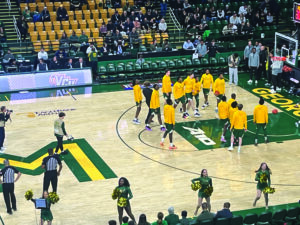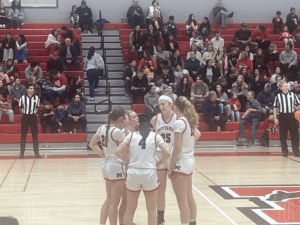
Leaders of important Falls Church civic organizations took turns coming to the microphone at the newly-revived in-person Falls Church City Council meeting last Monday to urge the Council to follow through on the suggestion by Council member Letty Hardi and a letter sent to the Council over the summer that the Council call into being a Race and Equity Commission.
Members of the independent Falls Church Social Justice Committee, the F.C. Chapter of the League of Women Voters, the Citizens for a Better City and the Tinner Hill Heritage Foundation, a disability advocate and a Meridian High School member of its Students of Color Association (SOCA) were among those prominent citizens who petitioned a receptive Council.
The student participant, Kiana Collins, and among other things spoke to the racial incident at Meridian last week that led to a brief walkout from classes by hundreds of students onto its football field last week in protest to the incident of loud racial slurs emanating from some students which members of SOCA felt had not been taken seriously enough by the school administration.
Collins, a City resident and Meridian student who is a student member of the F.C. Social Justice Committee, said that minority voices need to be better heard on issues that effect them at the predominantly white Meridian High School.
Debbie Massey of the F.C. Social Justice Committee recalled that in June, under the umbrella of her organization, representatives of a number of the groups who had representatives there drafted a letter to the Council seeking the formation of a formal City commission on race and equity.
Hal Lippman, former Council member and now president of the Citizens for a Better City (CBC), and Allison Brown on behalf of the Falls Church chapter of the League of Women Voters, joined Collins, Kate Singleton and Massey coming to the microphone to urge formation of the new commission.
Their petition was for the formation of a body that would look at issues of inclusion, diversity and equity and include at least one paid staff person to look at all the City’s issues, including its annual budget, “through an equity lens.”
They noted that similar bodies with paid staff have been formed in the last year by Falls Church’s neighbors, Fairfax and Arlington counties.
“Diversity is a beautiful thing,” exclaimed Collins, saying that “as a member of the marginalized, our voices need to be heard.”
Singleton said the heightened social awareness that grew out of the George Floyd murder case last year needs now to be kept alive by “an institutionalized and funded” effort to “keep the City accountable” with conversations that are ongoing in a “vulnerable, honest and perceiving manner.” It needs to extend to black, indigenous and all people of color (BIPOC) people, those with disabilities and lesbian, gay, bisexual, transgender and self-identified “queer” (LGBTQ) persons.
Massey said that the Council should take “a deliberate, intentional and strategic step” to form such a commission, noting the good work that happened earlier in the year as a result of the formation of a social equity review of all its board and commissions and a Use of Force Review committee’s work with the F.C. police department.
Such a group would be able to link up with similar groups in the region to form “a strong region-wide coalition.”
In other developments from Monday’s Council meeting:
It was announced that virtual town hall meetings were scheduled for last night, Oct. 27 and Thursday, Nov. 4 at noon to take citizen input on how to expend the City’s $18 million in federal American Rescue Plan (ARPA) funds.
City Manager Wyatt Shields confirmed the 20—25 percent shortage of labor at City Hall, reported in last week’s News-Press, and that “recruit and retention” efforts are aggressively being pursued. “This has our full attention,” he said, even as labor shortages are “a national trend that is requiring us to reshape our views of the role of work in our lives.”
Jobs have to become more flexible with more employee empowerment and more tools to support a workforce, he added.
Steve Mason, the City’s Human Resources Director, spoke about the need to place more emphasis on talent acquisition. Shortages currently are at 18 percent in the Department of Recreation and Parks, five in the police department including the retirement of long-time employees and predominantly in the Department of Public Works.













